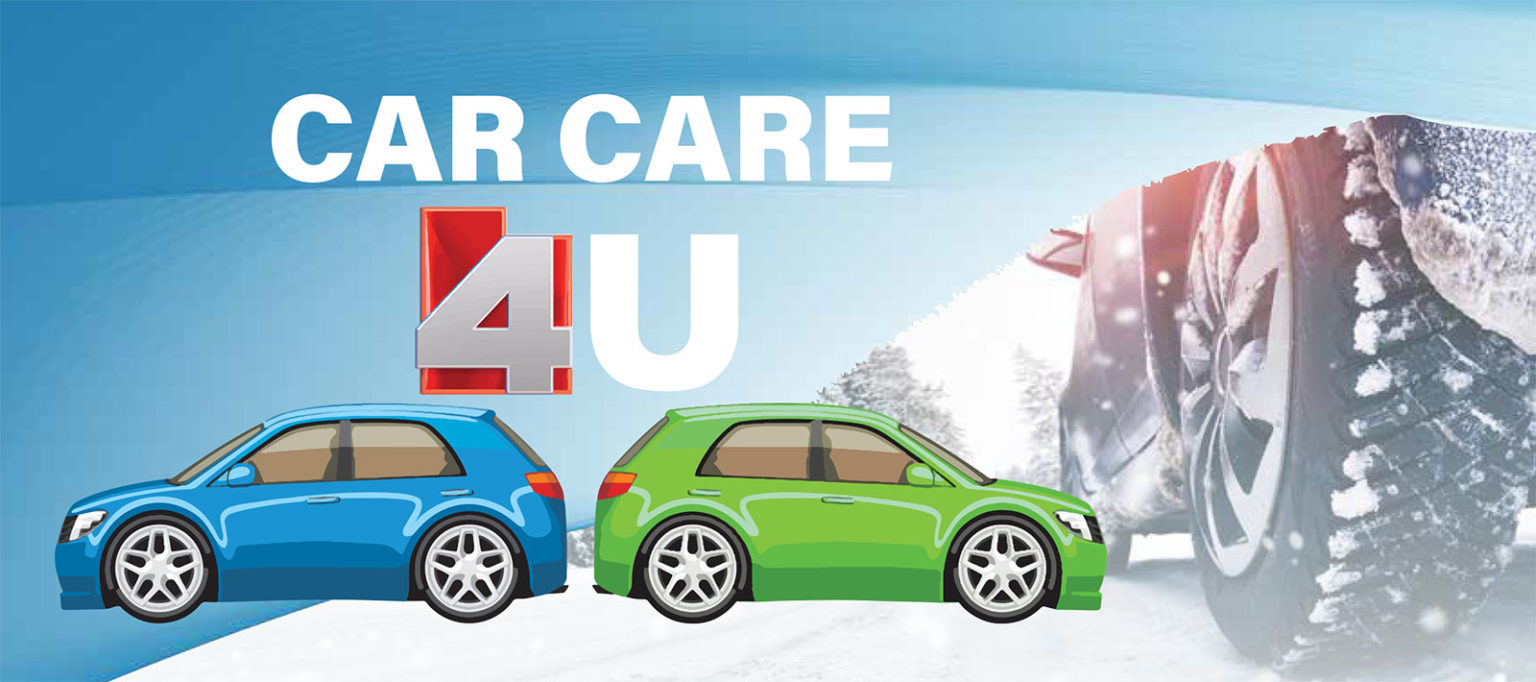Mention ‘Car Care 4 U’ and can get $10 off any service through February, 2020.
Antifreeze
Battery
Having your battery checked is a good idea:
- Cold weather degrades amp-hour capacity. For example, if the temperature outside is around 0 degrees F, a lead-acid battery, fully charged, has about half the rated amp-hour capacity it would have at 80 degrees F. Why? Extremely cold temperatures slow down a battery’s chemical reactions. The result is less power from the battery.
- Engines starting in cold weather need more battery current than they do in warm weather.
If you have a mechanic do a battery load test, you can find out whether you need to have the mechanic replace the battery. You will get more than just the test, though. Mechanics routinely check for corrosion on posts and connections, and they clean up any problems they find. They also see whether the battery needs distilled water, and they put some in if necessary.
If the mechanic recommends a new battery, and you live somewhere with strong winters, choose a battery that is rated at or above 600 CCA.
Belts, Hoses, Spark Plugs, Wires and Cables
When your mechanic performs regular maintenance, the spark plugs, wires and cables are always going to be on the list. However, if any of them were to fail, wouldn’t you rather they fail when the weather is pleasant? Have them checked before the bad weather becomes a permanent visitor, and then you won’t have to deal with them during a snowstorm.
In addition to normal wear and tear, cold weather can weaken belts and hoses. Both of them can squeak or malfunction when they are cold. If your mechanic looks them over to make sure they are in good condition, nothing will snap while you are driving.
Brakes
Emergency Supplies
Engine Fluids, Four Wheel Drive and AWD
Sometimes the weather is bad enough that the only people who should be on the road are the ones with four-wheel drive automobiles. A mechanic can make sure the system is working smoothly and that the gear and transmission fluids are at the right level.
Transmission fluid levels are also important for other reasons. Among other functions, the fluid cools the engine, cleans and protects interior metal, and lubricates the gears. The owner’s manual will tell you how often you should have a mechanic service the transmission.
Floor Mats
All-weather floor mats are a great investment if you want to prevent salty snow from soaking the carpet and then getting onto the car’s floorboards, but even inexpensive ones can provide some protection. Place the mats so they won’t interfere with the pedals.
Locks, Window Tracks, Latches and Hinges
If water gets into a door lock or a trunk lock and then freezes, you might not be able to unlock them. Silicon spray or a door-lock lubricant can prevent this problem. If a lock is already frozen, you can thaw it by using an antifreeze product. Lubricated locks are especially important if you have a remote keyless entry because locks that aren’t used can corrode. Suppose the battery in the key fob dies. You don’t want to have to call a locksmith if the lock is corroded, so prevent the problem by maintaining the lock.
Your mechanic can lubricate window tracks, front and back, with dry Teflon spray lubricant or spray silicone. Lubricating the tracks prevents drag from any freezing water that might get into the tracks.
The mechanic can also lubricate latches and hinges, such as the one for the hood. The hood latch is vulnerable to corrosion because of the amount of salt spray that gets thrown onto the hood by the cars in front of yours.
Oil Viscosity
Cold oil is less effective than warm oil at lubricating an engine because the cold thickens the oil, making it harder for it to circulate through your engine. You can see this when you are cooking; if you put some olive oil in a pan and turn a burner on, the olive oil spreads much more easily over the bottom of the pan after a couple of minutes than it does right after you pour it in. As a result, cold, thick oil makes it harder for you to start your car.
Car manufacturers have addressed this issue in part by using multi-weight oils that are suitable for a wider range of temperatures. Also, the owner’s manual has information about the correct viscosity for different climates. Your mechanic can tell you whether your vehicle would benefit from using a thinner winter oil
Tires
You have some choices to make when it comes to picking the right tires for your vehicle:
- All-season tires: These will work fine throughout the year if your winters are moderate and you don’t have to do much bad-weather driving. You will also get better gas mileage when you use them.
- Winter tires: These are designed for optimum traction. Dedicated winter tires have tread patterns and rubber compounds to provide additional safety. The tread patterns cut through slush and snow; the rubber stays softer in cold weather than the rubber in other types of tires, which allows it to grip the road more effectively. On the other hand, winter tires wear out faster and are noisier than all-season tires. You might want to consider buying inexpensive steel wheels and putting snow tires on them so that the winter driving conditions won’t destroy more expensive alloy wheels. That will also make it easier for your mechanic to switch between all-season tires and winter tires on your vehicle.
- Studded snow tires or tire chains: These are the best choice for extreme conditions, but they can damage road surfaces. Some states require chains on some roads. Laws forbid studded snow tires or tire chains on some roads because of the harm they can do. Please don’t invest in them unless you are sure they are legal in the places where you want to use them.
How much of a difference does a winter tire make? Researchers checked sedans on ice rinks at the University of Notre Dame. Sedans going just 10 mph took 8 feet more to stop with all-season tires than with winter tires. Sedans going 30 mph took 63 feet more to stop than their counterparts. For SUVs, the numbers were lower: 7 feet and 56 feet.
Don’t forget about tire pressure. Cold air means lower tire pressure. Tire pressure drops 1 psi every 10 degrees F. Have the mechanic check the tire pressure regularly and make sure they have enough air in them. It’s also a good idea for the mechanic to check the tread for you.
Warming and Idling the Engine
A snow-clogged radiator grill can still cause a car to overheat. Consider idling your car briefly before you begin driving to warm up the engine, and drive gently until the temperature gauge has moved away from the bottom peg or the cold engine light turns off.
Pay attention to whether the car is idling at a higher speed than normal. Let the idle speed drop before you put the car in gear. Doing so prevents additional wear and tear on the transmission.
Washing and Waxing
Car manufacturers have done a great deal to prevent rust, but dirt and salt are still hard on any car’s exterior. You can minimize damage by having the exterior waxed at the beginning of winter and then by having it washed regularly throughout the winter. Don’t forget to have the underbody and the wheel wells included to prevent salt buildup. A coat of wax on alloy wheels can be helpful, too, if you want to prevent corrosion and pitting.
Wiper Blades and Fluid
Being able to see the road matters. The combination of salt and water (in the form of rain, snow or ice) can make it almost impossible to see through the mess on your windshield.
- New windshield wipers, installed at the beginning of the winter season, are a good idea because wipers only last a maximum of about a year. Replacing them every six months is better, and if you live in a rainy climate, you might have to replace them even more frequently. Consider using a pair that has been specifically designed for harsh weather. Replace them immediately if they make a scratching sound or if they leave skid marks on the windshield. You can buy heated windshield wipers at some stores; they have a reputation for lasting longer in cold weather. Just don’t put hot or boiling water on the windshield or windows. The sudden temperature change can cause the glass to expand and crack. Also, any liquid that seeps down into a door can cause the power windows or the lock to malfunction.
- Having plenty of fluid helps those wipers clear your windshield, especially if the mechanic fills the wiper fluid reservoir with a brand that freezes at a lower temperature.
IMPORTANT CAR CARE TIPS
A handy flyer to download and keep on your phone or in your car.
Sources
- https://www.artofmanliness.com/articles/how-to-winterize-your-car/
- https://www.bridgestonetire.com/tread-and-trend/drivers-ed/how-to-winterize-a-car
- https://www.consumerreports.org/cro/2015/11/winterizing-your-vehicle/index.htm
- https://www.carmax.com/articles/13-ways-to-winterize-your-car
- https://www.familyhandyman.com/automotive/14-ways-car-ready-winter/
- https://www.familyhandyman.com/automotive/car-maintenance/how-to-winterize-a-car/
- https://www.carfax.com/blog/winterizing-your-car
- https://blog.nationwide.com/how-to-winterize-a-car/
- https://www.themanual.com/auto/how-to-winterize-your-car/
- https://www.autobatteries.com/en-us/how-to-choose-your-car-battery-replacement/battery-cold-cranking-amps-cca




